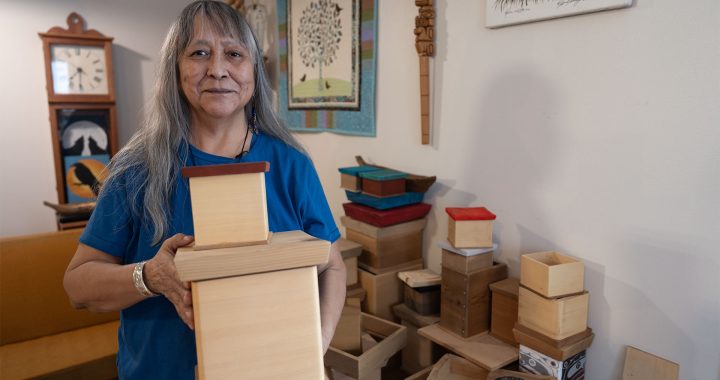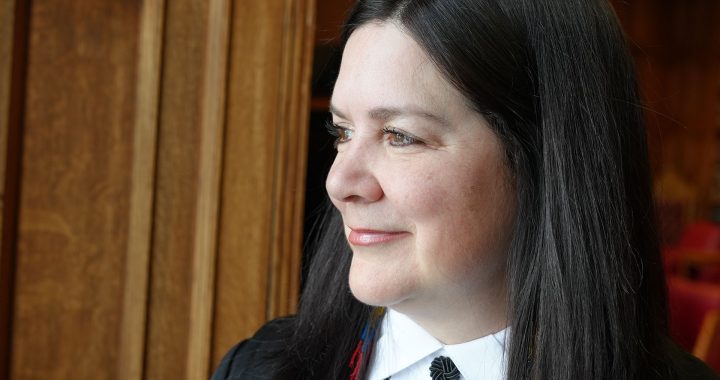
Logo for the Survivors of Sixties Scoop Indigenous Society of British Columbia non-profit / Supplied
Tens of thousands of Indigenous children were removed from their homes as a part of Canadian government policy, and many are now on a path back to reconnecting with their cultures.
Pamela Abraham, who goes by the preferred name of RavenSong Gargan, has launched a program for survivors of the ‘60s Scoop to help them connect with one another.
Called the Sixties Scoop Indigenous Society of B.C. (SSISBC) and based in Vancouver, Gargan says it has taken about a decade from idea to implementation.
RavenSong Gargan is president of the Sixties Scoop Indigenous Society of B.C. Photo: Supplied
According to the Sixties Scoop Network, more than 22,500 First Nations, Inuit and Métis children were forcibly taken as part of the practice, which peaked in the 1960s.
“For me, food security for elders is vital,” says Gargan, the president of SSISBC. “We need to ensure that they are taken care of.”
Gargan also values the cultural exchange that comes with time with Elders.
“They are our knowledge keepers. And so many of us as ‘60s scoop survivors don’t know enough,” says Gargan.
Gargan’s program right now consists of food vouchers for elders, where they can go to the farmer’s market and get fresh vegetables with partnering farmer’s markets. The program is a joint effort with the British Columbia Farmer’s Market Nutrition Program.
She also hosts a weekly meeting on Zoom where survivors can participate in a sharing circle.
“I was really quite surprised when I was talking to a fellow ‘60s scooper that these [vouchers] were available,” says Mechelle Pierre, an elder living in Vancouver and a new participant in the program.
“I am a pensioner and money doesn’t last throughout the whole month. You try your best to take care of it, but between rent and utilities you don’t have that much,” says Pierre.
Pierre calls the voucher program a load off of her mind, but she is also eager to start participating in the sharing circles that are held online.
“A lot of times you don’t even know you need help until you’re in a circle because you are detached,” says Pierre.
Many children who were taken from their homes have grown up with a sense of detachment from the communities they were born in. Pierre says she is from Merritt, B.C., where the Scw’exmx Tribal Council has four communities that make up a tribal council.
“You’re not a part of that group anymore. Even though I know where I am from, I am not accepted there,” says Pierre.
She would like to see programs for ‘60s Scoop survivors to offer extended periods of help and social gatherings.
Urban communities are increasingly playing a role in reconciliation, and programs that support ‘60s Scoop survivors are bringing together people with similar backgrounds.
“There are people out there to help you and it is OK to accept that help,” says Pierre.











